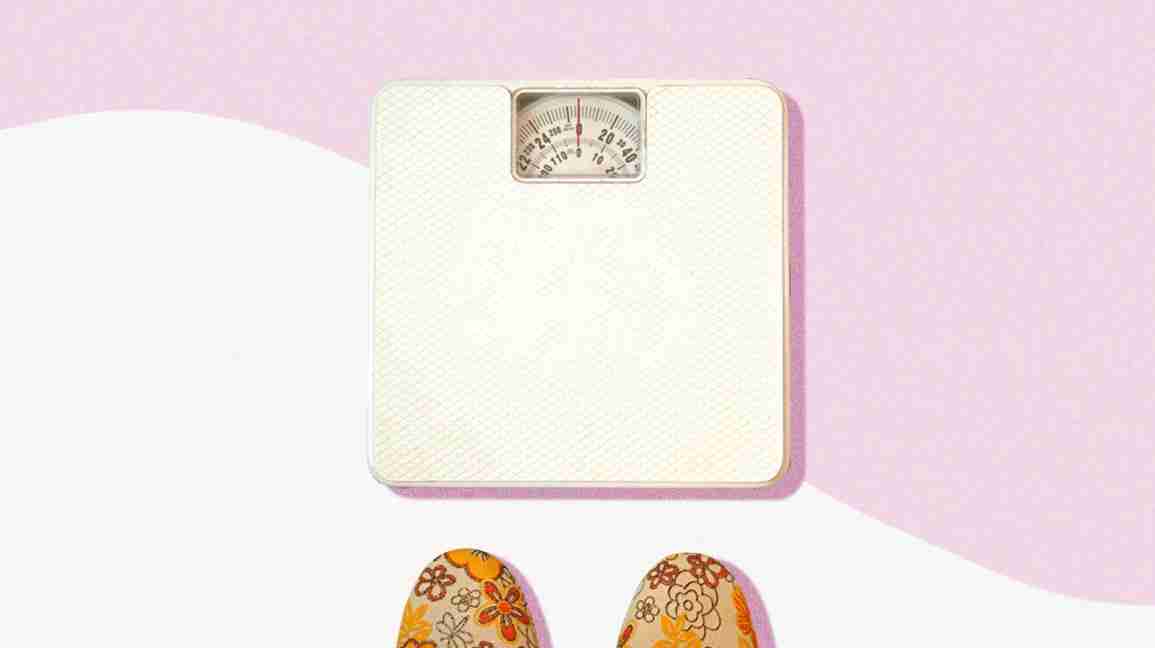As someone living with type 2 diabetes, you likely know the importance of regularly checking your blood glucose, or blood sugar, levels. You should also have tools to help you regulate it, including medications, insulin, and lifestyle choices.
But what you may not realize is the importance of carefully monitoring three other health measurements: your blood pressure, weight, and cholesterol.
Lifestyle choices are a major factor in improving your heart health and lowering cardiovascular disease risk. These choices are a commitment, not a one-time task.
This 7-Day Heart Health Challenge, with expert-backed tips, is designed to address the specific concerns of people living with type 2 diabetes. These principles and choices can also apply to anyone looking to lead a healthy lifestyle.
Over the next seven days, you’ll learn about the importance of:
- getting regular exercise
- eating a heart-healthy diet
- managing stress
- getting adequate sleep
- limiting alcohol intake
The goal of this seven-day challenge is to introduce new, healthy lifestyle choices into your routine that can build upon the previous day’s lesson. The cumulative effect will have a powerful influence on your heart health, your cardiovascular disease risk, and your longevity.
First, let’s take a look into why this challenge is so important for people living with type 2 diabetes.
People living with diabetes are more likely to develop heart disease, and develop it at a younger age, than people without the condition. Additionally, the risk of having a heart attack or stroke is higher among those with diabetes than people without it.
“Cardiovascular disease is the main cause of mortality with diabetes, both type 1 and type 2,” says Marina Basina, MD, an endocrinologist and clinical associate professor of medicine at Stanford University School of Medicine. “Patients with type 2 especially may start developing cardiovascular disease years before they get diagnosed with diabetes because they may have preexisting diabetes before they actually get diagnosed.”
If you have diabetes, you can work to protect your heart health the way you manage your blood sugar numbers. Controlling your blood pressure, as well as your cholesterol level, can help you reduce risk factors that contribute to heart disease. It can also reduce damage to your blood vessels and nerves.
“Start early in order to prevent cardiovascular disease,” Dr. Basina says. “As we know from large landmark cardiovascular trials in diabetes, if we start early enough to improve all the cardiovascular risk factors — they’re not just diabetes control, but also high blood pressure, high cholesterol, lifestyle factors, smoking — then we can prevent cardiovascular disease.”
Still, no matter your age or how long you’ve been living with type 2 diabetes, you can get started on a path to a healthier lifestyle today. Begin with day one of this challenge below.
Today’s goal: Walk 30 minutes.
Exercise is one of the foundations of a healthy lifestyle, whether you have diabetes or not. If you have prediabetes, regular physical activity can help stabilize and slow the onset of type 2 diabetes. Exercise can also slow the progression of damage to blood vessels and your cardiovascular system.
Physical exercise, Dr. Basina says, is cumulative. Getting short bursts of movement throughout the day can be as beneficial as sustained exercise. “Any type of exercise is better than nothing. Even incorporating 5 to 10 minutes would be helpful,” Dr. Basina says. The American Heart Association recommends 30 minutes of moderate intensity exercise at least 5 days a week.
A few fitness factors to keep in mind:
- Get your heart rate up. “You don’t want to be moving at a very slow pace,” Dr. Basina says. You need to pick up the pace so your heart does, too. But, if you are so short of breath that you can’t have a short conversation with someone next to you, you may be pushing yourself too hard.
- Set a step goal. Pedometers or fitness trackers are relatively inexpensive and easy to clip on and wear. They can give you an idea of how much you’re moving so you can set goals for yourself each day. Aim to reach 5,000 steps at first, then bump it up to 10,000.
- Don’t forget to strength train. Exercise isn’t all about cardio. Muscle training can give you more energy, improve your body’s uptake of sugar, and boost your cardio performance, too.
Today’s goal: Weigh yourself.
“Being overweight increases your risk of heart disease,” Dr. Basina says. “Excess weight leads to conditions that increase the chance of heart disease — high blood pressure, high cholesterol, and worsening of diabetes control.”
A few factors to keep in mind:
- Check your weight regularly. A reasonable amount is once per week, says Dr. Basina. In some cases, your doctor may ask you to check your weight more regularly.
-
Your body mass index (BMI) is a guide. A high BMI adds health risks and worsens risk factors for heart disease. Knowing yours can help you plot a plan to lower it.
Calculate yours to see what category you fall into. A healthy BMI is 20 to 25. - Small losses are big. You’ll start to see improvements even after losing a few pounds. “A 3 to 5 percent weight loss may help reduce cholesterol or triglycerides, as well as blood sugar,” Dr. Basina says.
Today’s goal: Plan a week of heart-healthy meals and go shopping.
While researchers haven’t been able to decide on one diet that’s the best heart-healthy option for people with diabetes, Dr. Basina says they’ve found significant takeaways that apply across the board.
Foods you should limit:
- Saturated fats. This includes dairy, red meat, and animal fats.
- Artificial trans fats. Examples are margarine, processed baked goods, and fried food.
- Alcohol. A small amount of alcohol is fine, but all in moderation, says Dr. Basina. Alcohol can have excess calories and contributes to total caloric intake.
Foods you can embrace:
- Low-fat, high-fiber foods. This includes whole grains, vegetables, and leafy greens.
- Fruits and vegetables. “Fruit is fairly high in sugar,” Dr. Basina says, but you can still eat several servings each day.
- Fish. Aim for two servings per week. Your best options include salmon, tuna, and trout.
- Unsaturated fats. Examples include avocado, olive oil, nuts, soymilk, seeds, and fish oil.
If you need a structured diet to hold you accountable, Dr. Basina says the Mediterranean diet and the Dietary Approaches to Stop Hypertension (DASH) diet are two good examples of diets that meet many of these goals. The Mediterranean diet focuses mainly on plant-based foods, and the DASH diet helps with portion control and reducing sodium intake.
Today’s goal: If you smoke, make a plan to quit.
“Quitting smoking lowers your risk for heart attack, stroke, nerve disease, kidney disease, eye disease, and amputation,” Dr. Basina says.
You don’t have to smoke a pack a day to see the risk, she adds. Even social smoking at bars and restaurants can increase your risk of heart disease.
Important tips for smoking cessation:
- Get help. Talk with your doctor about possible treatments, including prescription medications, that may help you quit.
- It’s not always easy. “It’s really difficult to quit smoking for most individuals,” Dr. Basina says. But that doesn’t mean you shouldn’t try. She says the best thing you can do is make a plan and develop a support system to encourage and motivate you.
-
Try, try again. One study found the average smoker tries to stop smoking more than 30 times before they’re successful. Indeed, the Centers for Disease Control and Prevention (CDC) says
68 percent of adult smokers report they want to quit completely. More than half have tried to quit at least once.
Your body will help you recover from years of smoke-induced damage, Dr. Basina says. In fact, within a year, your risk of heart disease lowers to
Today’s goal: Find an activity that relaxes you and do it.
“When we are stressed, we produce stress hormones that constrict blood vessels, so in someone who already had preexisting hypertension that is not perfectly controlled, it can raise blood pressure to dangerous levels,” Dr. Basina says.
Not only can stress raise your blood sugar and blood pressure, but it can also increase inflammation and increase your chances of having a heart attack or stroke.
To reduce your stress, you might turn to overeating, smoking, drinking, or getting angry at others. But these aren’t healthy paths to take to maintain your physical health or your mental health.
Instead, Dr. Basina recommends you come up with an alternative plan for stress management.
Some stress-reducing activities you can try include:
- exercising
- gardening
- deep breathing
- doing yoga
- going for a walk
- meditating
- listening to your favorite music
- working on a project that you enjoy
- cleaning
- journaling
- hobbies
Today’s goal: Tuck in early so you get seven to nine hours of sleep.
Sleep may seem elusive if you have pressing deadlines, active kids, and long commutes. But it may be one of the best ways to improve your heart health.
“We do see all the time that if an individual does not sleep well at night, it tends to increase blood pressure and blood sugars. They tend to eat more calories and gain weight with sleep deprivation, too,” she says.
Here are some ways to achieve healthier sleep hygiene:
- Set a schedule. Decide on a plan that best fits the needs of you and your family and still allows you to have seven to nine hours of sleep. Stick to it as best you can, even on the weekends and when traveling.
- Create a routine. Dr. Basina suggests finding an activity that helps you wind down right before bed.“Read a few pages or take a walk before bedtime,” she says, “or have some herbal tea before bed. The key is coming up with a routine that the body feel will like it’s my time to go to sleep.”
- See your doctor. If you get seven to nine hours of sleep but still don’t feel refreshed, bring this up to your doctor at your next appointment. You may have a medical condition that’s affecting your sleep quality.
Today’s goal: Start a health diary.
You may already track your blood glucose numbers daily or several times each day. That’s an important part of your care. But now, it may be time to start following three numbers that tell you about your heart health: your blood pressure, hemoglobin A1c, and cholesterol levels.
Ask your doctor to repeat your numbers so that you can write them down at your appointments. Also, talk to them about ways you can measure these levels at home. They may recommend a home blood pressure monitor that’s easy to use and fairly inexpensive.
If you don’t check these numbers regularly, it’s easy to deviate from your target goals.
“Hemoglobin A1c of 7 percent or less is the target for most of the individuals with diabetes,” Dr. Basina says. The blood pressure goal for most people with diabetes, she adds, is below 130/80 mmHg, but it can be lower for some individuals. As for low-density lipoprotein (LDL), or “bad” cholesterol, the target is less than 100 mg/dL in most but less than 70 mg/dL in those with history of heart disease, stroke, or arterial disease.
Your health diary can also include notes on how you feel each day, the amount of exercise you did, and what foods you ate. This can help you set goals for yourself and show you how much improvement you’ve made over time.
After one week of making these changes, you’re already on your way to a healthier lifestyle with type 2 diabetes. Remember that these choices require long-term commitment to truly see improvements in your heart health. Don’t give up if you miss a day or forget a task. You can always try again.

